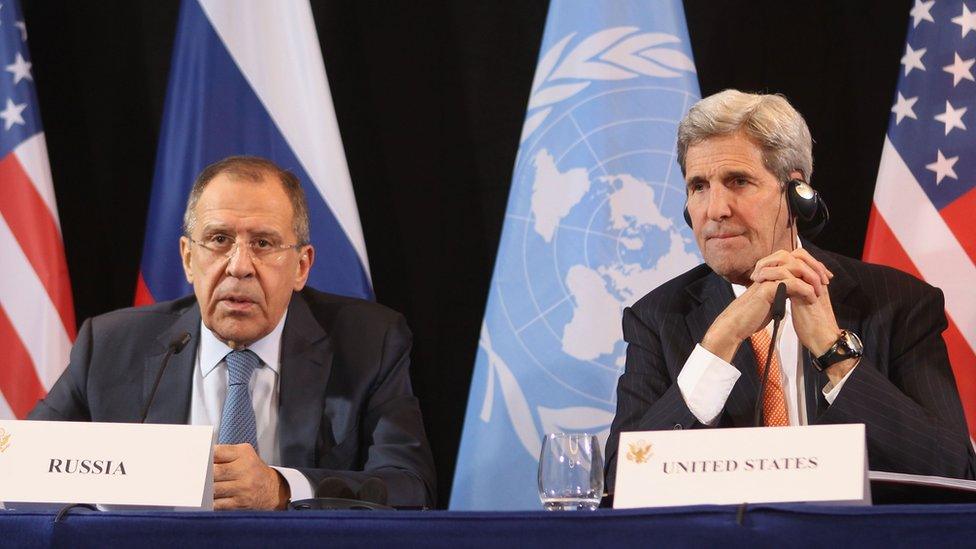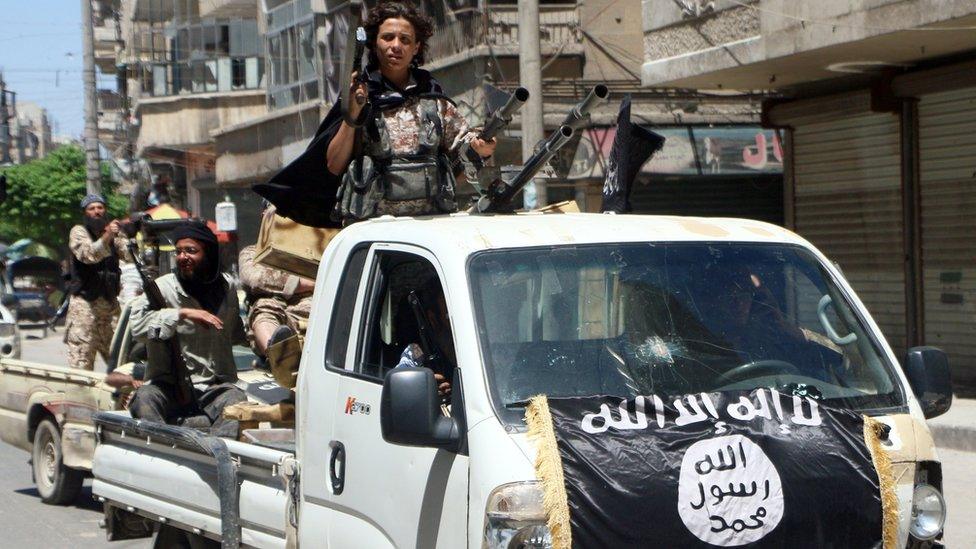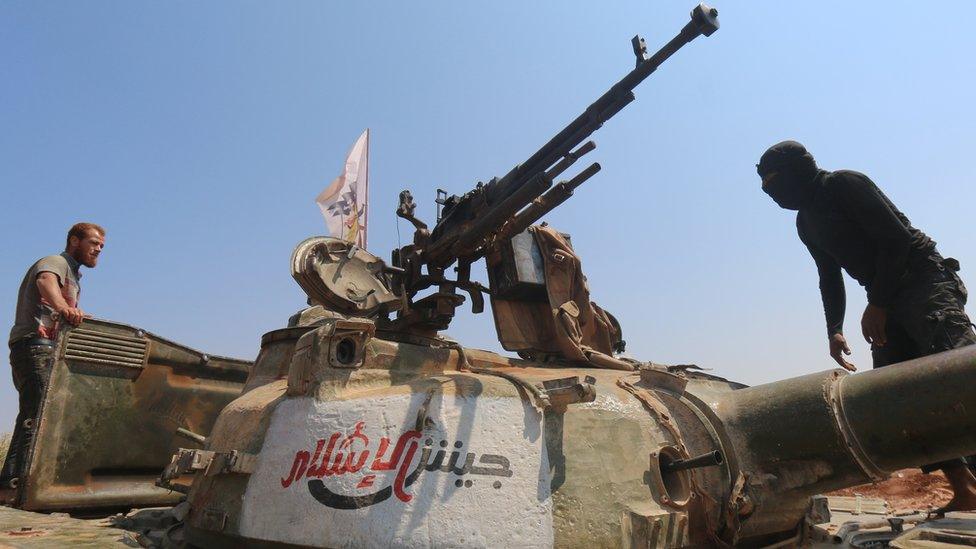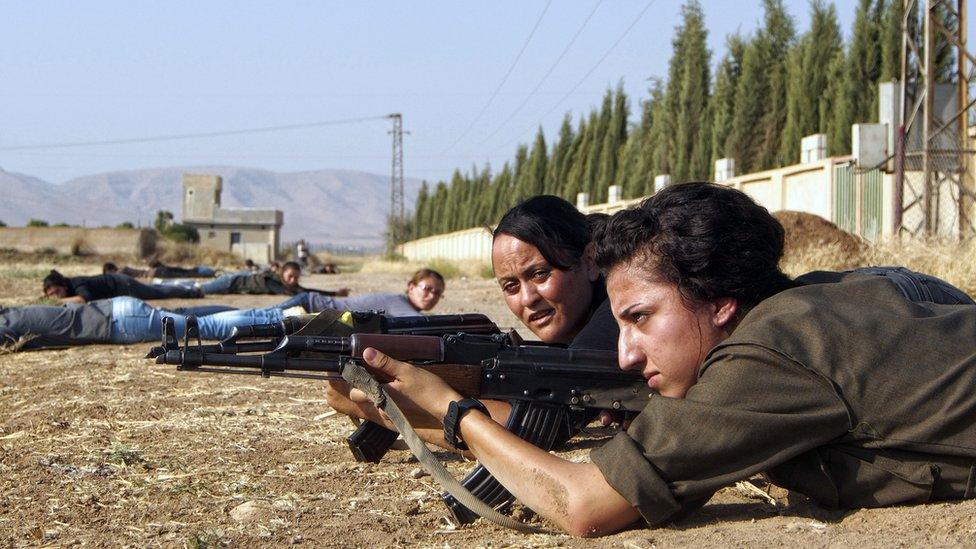Syria 'truce': Who's in and who's out?
- Published

Russia and the US have brokered the plan, but some groups will be excluded
The partial ceasefire for Syria brokered by the United States and Russia is scheduled to come into effect on 27 February.
It excludes the so-called Islamic State (IS) group, the al-Qaeda-linked Nusra Front, and, according to its terms, other UN-designated "terrorist" organisations, while including all warring parties that agree to it.
The Syrian government says it will observe the cessation of hostilities, but insists that it will continue to fight IS, al-Nusra and "other terrorist groups linked to them".
The Higher Negotiation Committee, which represents most of the main rebel factions, has given "preliminary approval" to the agreement, and is expected to announce its final position soon.
Syria's Kurdish groups say they will still fight Islamic State, al-Nusra and the Ahrar al-Sham Islamist group, without clarifying their stance on the ceasefire agreement.

What areas are excluded from the agreement?

Al-Nusra Front militants in the northern Syrian city of Aleppo
Islamic State and al-Nusra control large tracts of land across Syria, where fighting will continue.
The city of Raqqa, Deir al-Zour province and parts of neighbouring Hassakeh province, which both border Iraq, are under IS control, and it has a presence north and east of Aleppo, in particular in Al-Bab, Manbij, and Jarablus.
In May 2015 it captured the city of Palmyra and extended its control into eastern Homs province, and has a limited presence in the rural areas of eastern Hama.
The group is also present in the strategically important Qalamoun mountains north-east of Damascus, where it has clashed with al-Nusra.
Al-Nusra Front is present in Aleppo and areas to the south and north-west of the city. It also controls parts of Qalamoun region and Hama province.
Unlike IS, al-Nusra is willing to conclude tactical alliances and go into coalition with other groups, such as with the Islamist Jaish al-Fatah in Idlib Province.
A question mark remains over the status of these allied groups under the ceasefire terms.

Do all parties agree with the exclusion list?

Jaish al-Islam militants on the north western outskirts of Aleppo
No. Russia, Iran and the Syrian government regard Ahrar al-Sham and Jaish al-Islam as terrorist groups.
Ahrar al-Sham is likely to be excluded from the ceasefire, given its alliance with al-Nusra in Aleppo and Idlib.
But Jaish al-Islam, which controls large areas of the Damascus countryside, has closer ties to the broader Syrian opposition, and any attack on its positions might therefore endanger the ceasefire.

What about the Kurds?

Syrian-Kurdish women being trained by the Kurdish Women's Defence Units in the northern Syrian border village of al Qamishli
The Kurdish People's Protection Units (YPG) and Women Protection Units (YPJ) are simultaneously fighting various Islamist groups as part of the US-backed Syrian Democratic Forces (SDF) campaign.
They are fighting IS in Hassakeh province, and al-Nusra and Ahrar al-Sham around Aleppo.
The ceasefire will not have a direct impact on these theatres.
BBC Monitoring reports and analyses news from TV, radio, web and print media around the world. You can follow BBC Monitoring on Twitter, external and Facebook, external.